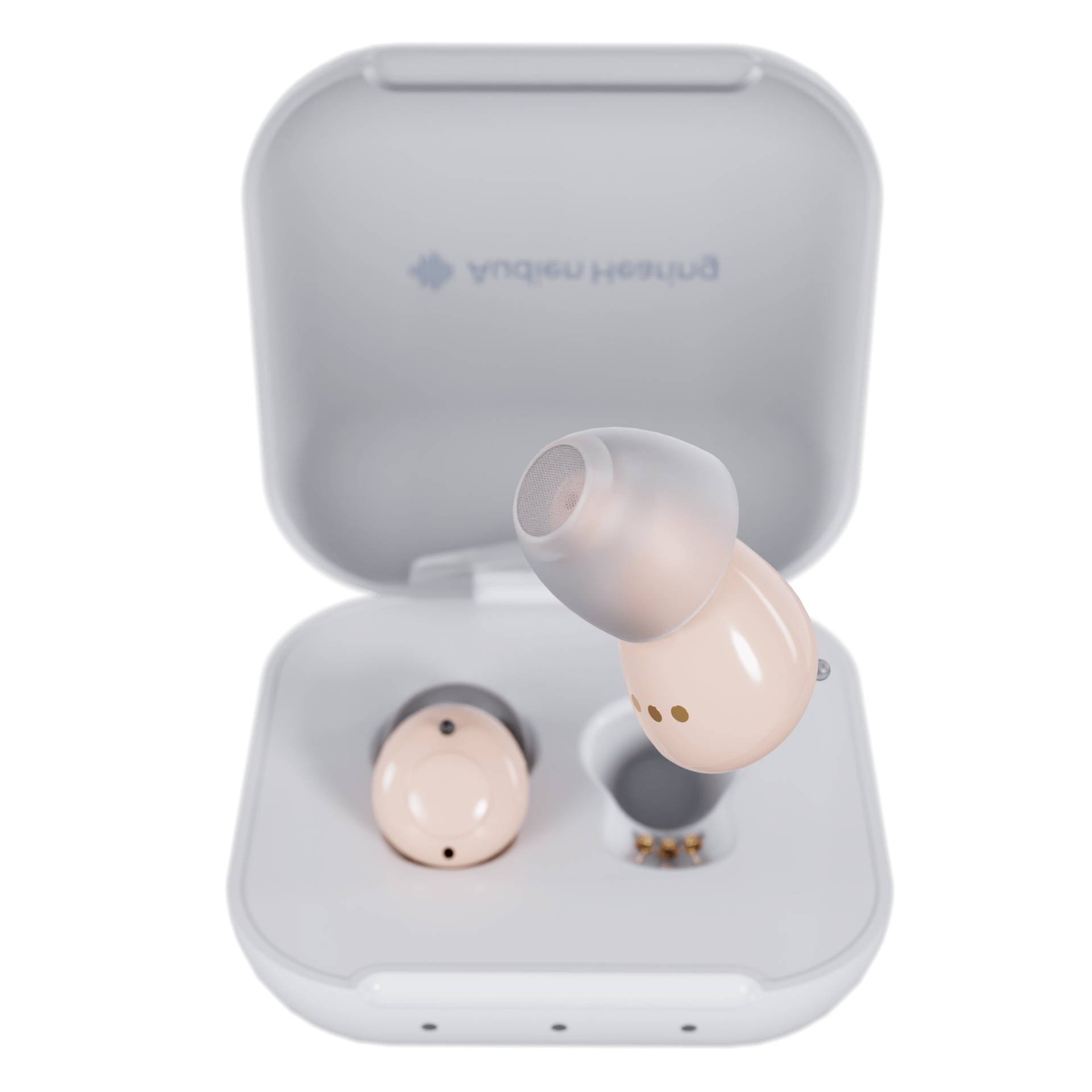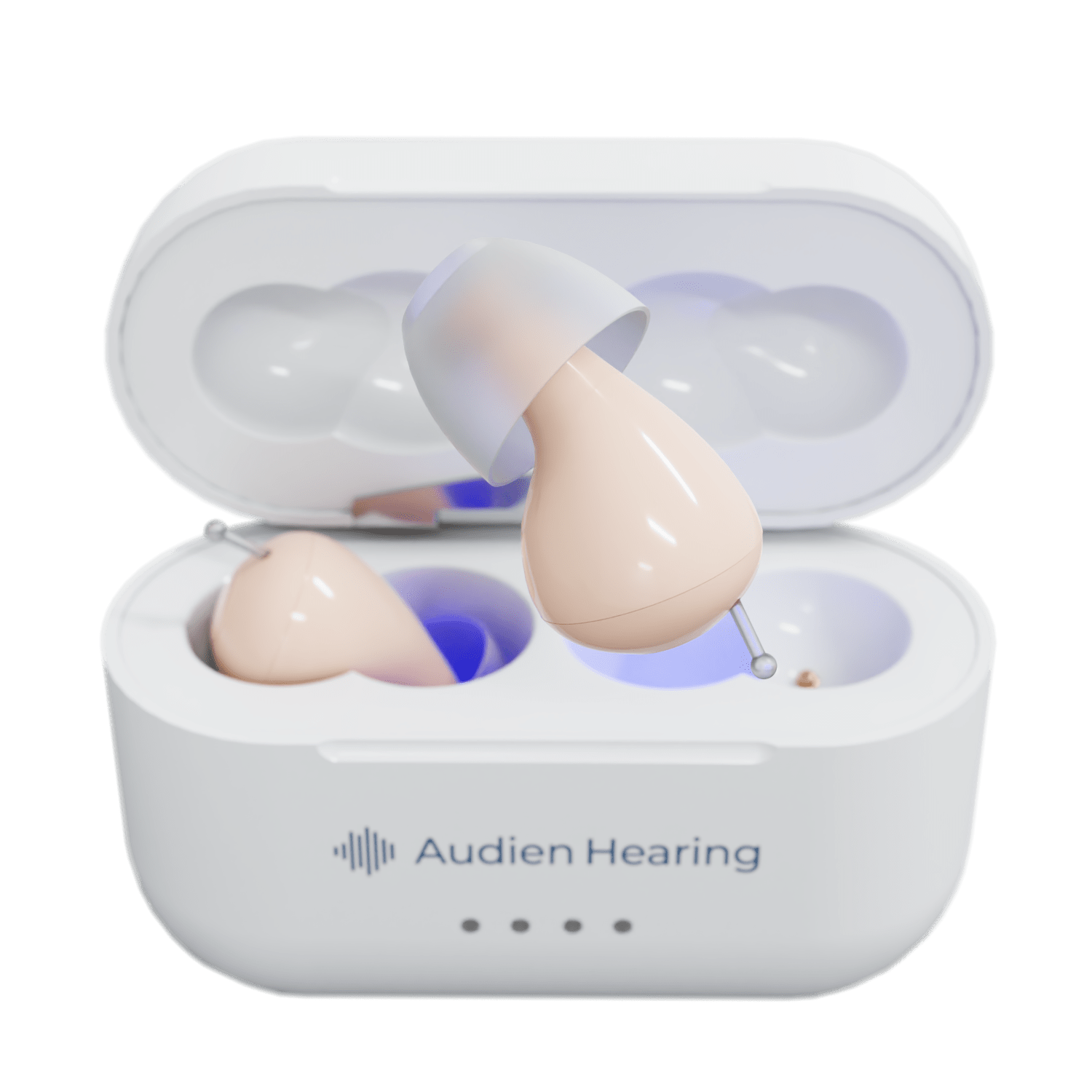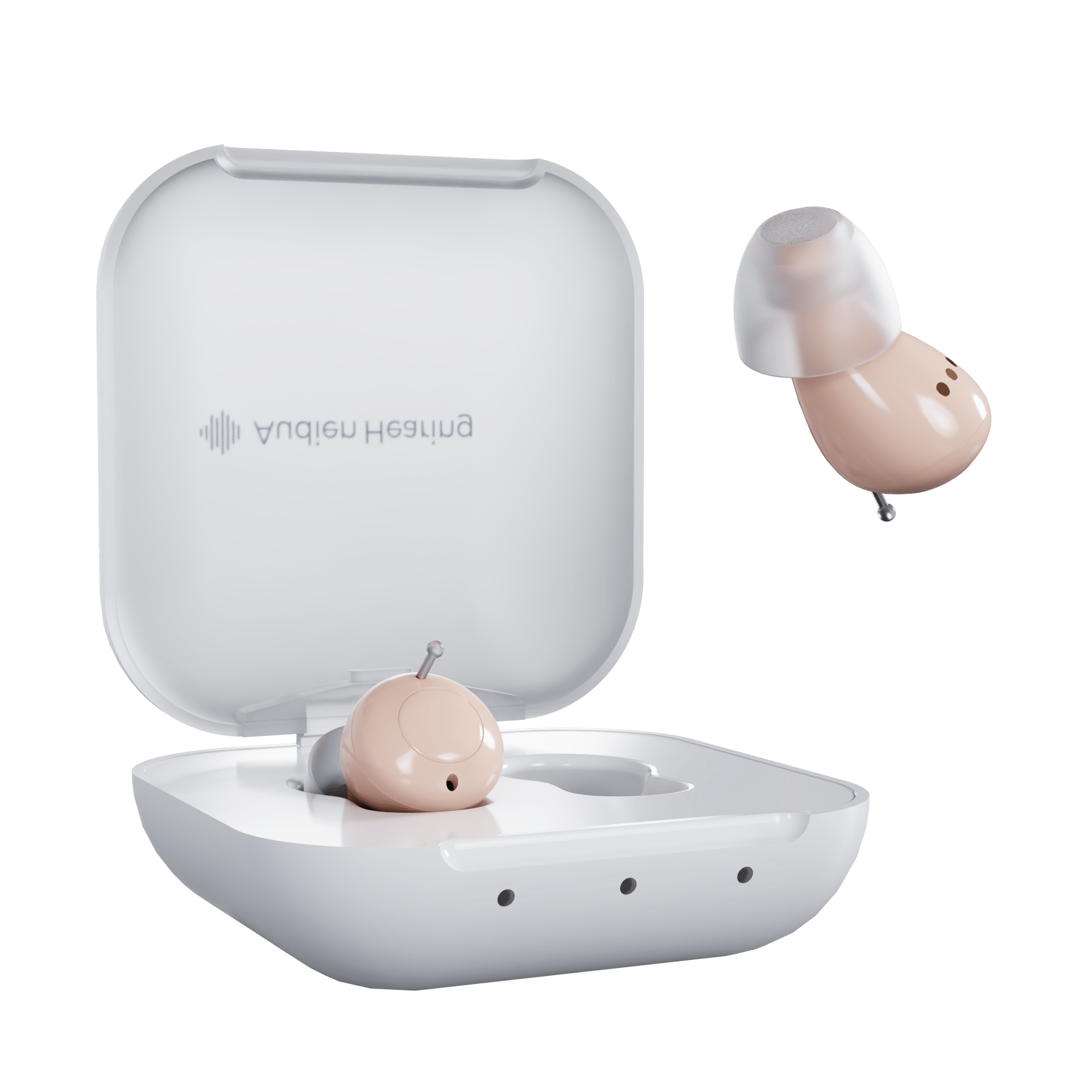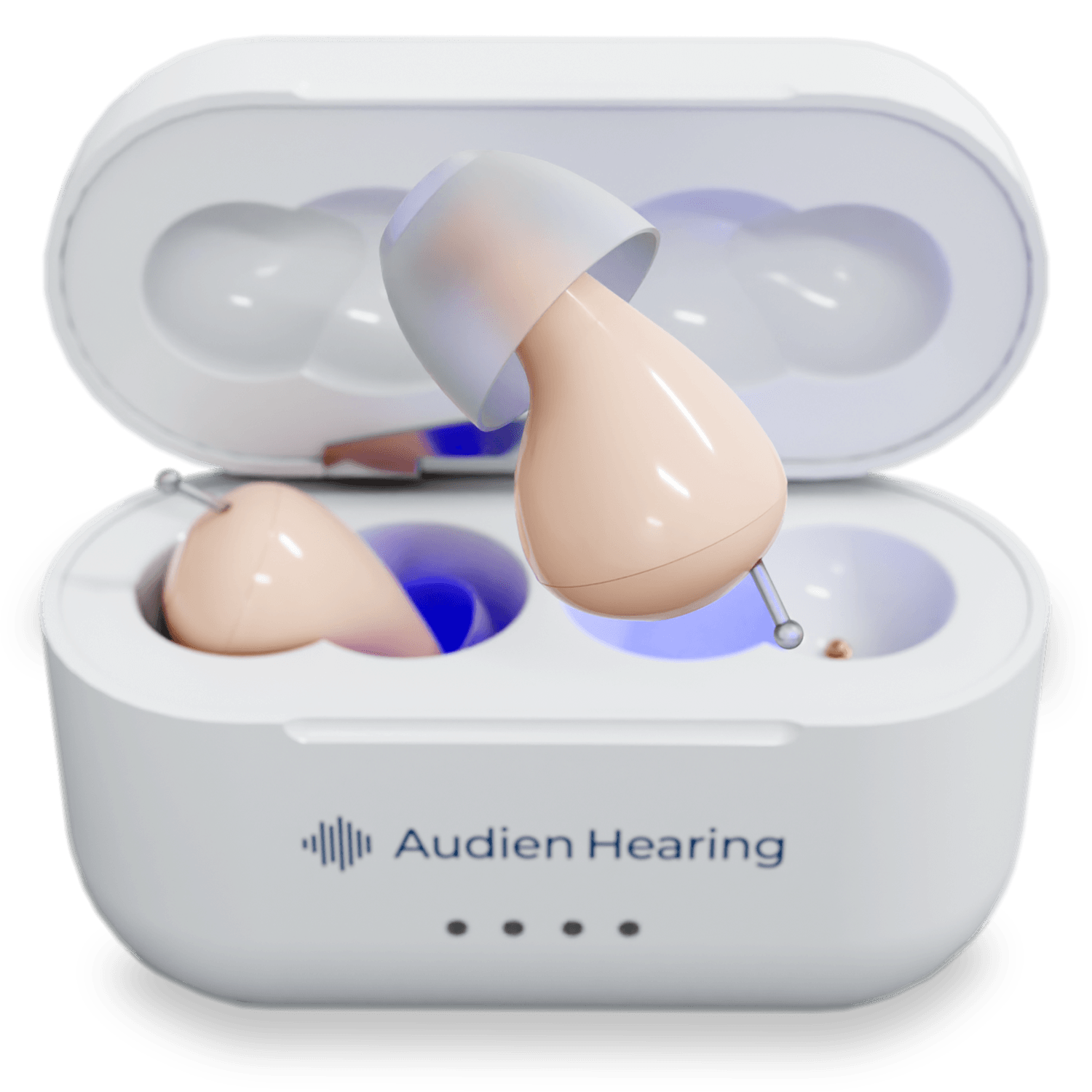When you are at work, you want to do your best in every part of your job. Showing you are productive and responsive enhances your performance and helps you get ahead, but this becomes harder if you're having trouble with your hearing. In some professional environments, it may even be dangerous. Learning to improve your hearing while you are on the job can drastically change the quality of your work life for the better.
1. Improve Your Hearing With Hearing Aids
The first way to experience better hearing at work is to get a hearing aid. Hearing loss is a common issue worldwide, caused by factors such as age, injury, illness, or prolonged exposure to loud noise. According to the National Institutes of Health, about one-third of people between the ages of 65 and 74 have trouble hearing.
Younger and middle-aged adults are not immune—some begin to notice hearing issues as early as their 30s. For many, this is the prime of their working life, making untreated hearing loss a serious obstacle to productivity and communication on the job.
Hearing aids can help restore clarity and improve quality of life, and today they’re more accessible than ever. In the past, hearing aids required a visit to an audiologist and a prescription for expensive, custom-fit devices. While seeing an audiologist is still a smart choice—many people now benefit from over-the-counter devices like the Audien Atom Pro, which can be ordered online with minimal inconvenience.
That said, if you want a baseline of your hearing ability, it’s always a good idea to get a comprehensive hearing test. And if you have any concerns about your hearing, feel it’s getting worse, or are experiencing related symptoms like tinnitus or dizziness, please seek medical care. Early intervention makes a big difference.
If you're not ready—or don’t have access—to see a provider, you can still take the first step. At-home hearing tests and OTC hearing aids are accessible options that make it easier to get started. Everyone’s hearing journey is unique, and it’s okay to begin wherever you are.
2. Improve Your Hearing by Reducing Workplace Noise

As you deal with hearing issues, talk to your supervisor about potential changes to where and how you work. See if you can be placed in quieter situations. For instance, if you commonly work near loud machinery that makes it hard to communicate with your colleagues, maybe your manager can move you to a quieter workstation.
With fewer loud sounds and noise distractions, you can usually understand conversations in person and on the telephone better. This offers another benefit by protecting your ears. If you are already starting to deal with hearing loss, remaining in a noisy environment only makes things worse.
You can also be deliberate about when and where you have conversations at work to improve your hearing. When a coworker needs to talk with you, move the conversation to a quiet setting such as an office, an empty breakroom or an unused conference room. You will have less excess noise to try to sort through and can focus on the discussion at hand.
3. Improve Your Hearing With Headphones

If you spend much of your workday in virtual meetings or listening to audio content, headphones can help you focus and hear more clearly—especially in noisy environments. For individuals with hearing loss, pairing headphones with hearing aids can be helpful, but it depends on the type of hearing aid, the style of headphone, and your personal hearing needs.
If you use a low-profile in-the-ear (ITE) hearing aid like the Audien Atom or Atom Pro, you can often wear over-the-ear headphones comfortably. These should be soft, cushioned, and large enough to sit around the ear without pressing directly on the hearing aid. This setup may help improve speech clarity, especially for video calls or pre-recorded content.
That said, not everyone needs or wants to use both at the same time. Some people may choose to remove their hearing aids temporarily and just use headphones—especially if they find it more comfortable or if the audio is clear enough without amplification. The best choice depends on your specific needs, your hearing goals, and the environments you’re in most often.
If you do use headphones—whether with or without hearing aids—just make sure you’re listening at a safe volume. There’s no universal rule, but as a general guideline: keep the volume at the lowest level that still feels comfortable and clear. Louder isn’t better, and prolonged high-volume listening can cause further hearing damage over time.
If you're regularly exposed to loud environments, it's also important to wear proper hearing protection. You can ask your employer or hearing care provider to help you select the right kind of protection and ensure it’s being inserted or worn correctly. Hearing protection only works if it fits well and is appropriate for the noise level.
In short, there’s no one-size-fits-all answer. Some people benefit from wearing hearing aids and headphones together, others may prefer to use one or the other. The key is to do what works best for your comfort, safety, and hearing needs.
4. Use Coping Strategies To Improve Your Hearing at Work

As you take these steps to hear better at work, you should also work on some other coping ideas to make your job easier.
Communications
Start with adjusting how you communicate. Increase your use of email and messaging tools so you can send and receive more written communications. You can rely on your eyesight rather than your hearing.
Meetings
Get meeting agendas printed and shared in advance so it is easier to follow along. Your brain can put together context clues even if you don't hear every word perfectly. Sit as close to the presenter as possible when you can so you don't have to strain to hear from the back of the room.
In-Person Conversations
When you do have conversations in person, make sure the individual you are talking with is facing you so you can see the person's lips. Reading lips can help make sense of what someone is saying, helping you stay on top of what's happening at work. Ask people to refrain from sharing messages across the room. You can also reduce distractions by multi-tasking less when holding a conversation.
Phone Accommodations
Workers who spend a lot of time on the telephone may want to ask their employers about phones that are compatible with hearing aids. Not all receivers are comfortable when held against a hearing aid, so changing it may make it easier for you to do your job. You should also ask if there are any transcription tools available for your phone and virtual meeting systems.
Improve Your Hearing for a Better Life

Your hearing is one of your most important senses, and as it starts to decline, taking care of it should be a priority. At work and in everyday life, even small changes—like improving listening habits or using hearing aids—can make a big difference in how well you communicate and stay connected.
Everyone starts their hearing journey in a different place. Whether you choose to get a comprehensive hearing test from a professional or begin with an at-home screening, understanding your needs is the first step. If you ever feel concerned about your hearing, notice it worsening, or experience symptoms like tinnitus or dizziness, be sure to seek medical attention.
That said, many people with mild to moderate hearing loss don’t require overly complex technology. Affordable over-the-counter (OTC) hearing aids can be a great solution for everyday needs—especially for adults looking for a simple, rechargeable, and easy-to-use option.
If you're ready to improve your hearing, don’t wait. Explore the options from Audien Hearing and find the rechargeable OTC hearing aid that fits your needs and your budget. Log on today to get the best prices and start hearing better—sooner.
https://www.cdc.gov/niosh/topics/noise/preventhearingloss/default.html https://www.healthyhearing.com/report/52738-Hearing-loss-in-the-workplace https://hearinghealthfoundation.org/hearing-loss-in-the-workplace https://speechhearing.com/how-better-hearing-can-help-your-career/ https://www.nia.nih.gov/health/hearing-loss-common-problem-older-adults https://www.consumerreports.org/hearing-ear-care/headphones-and-hearing-aids/ https://audienhearing.com/collections/rechargeable-hearing-aids













